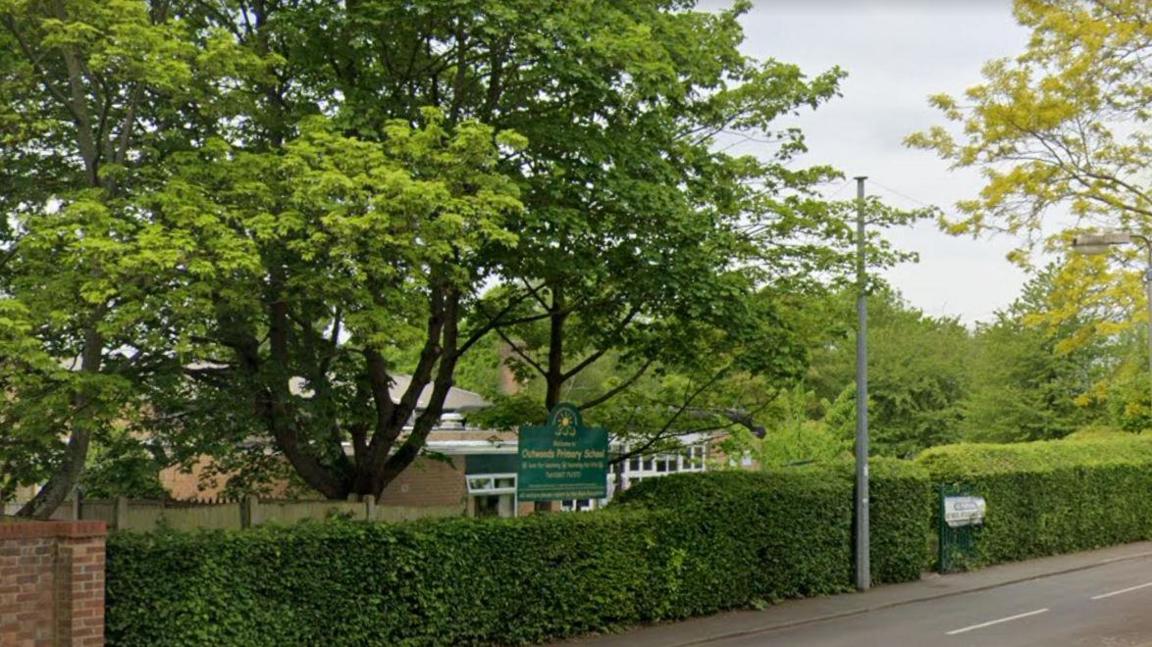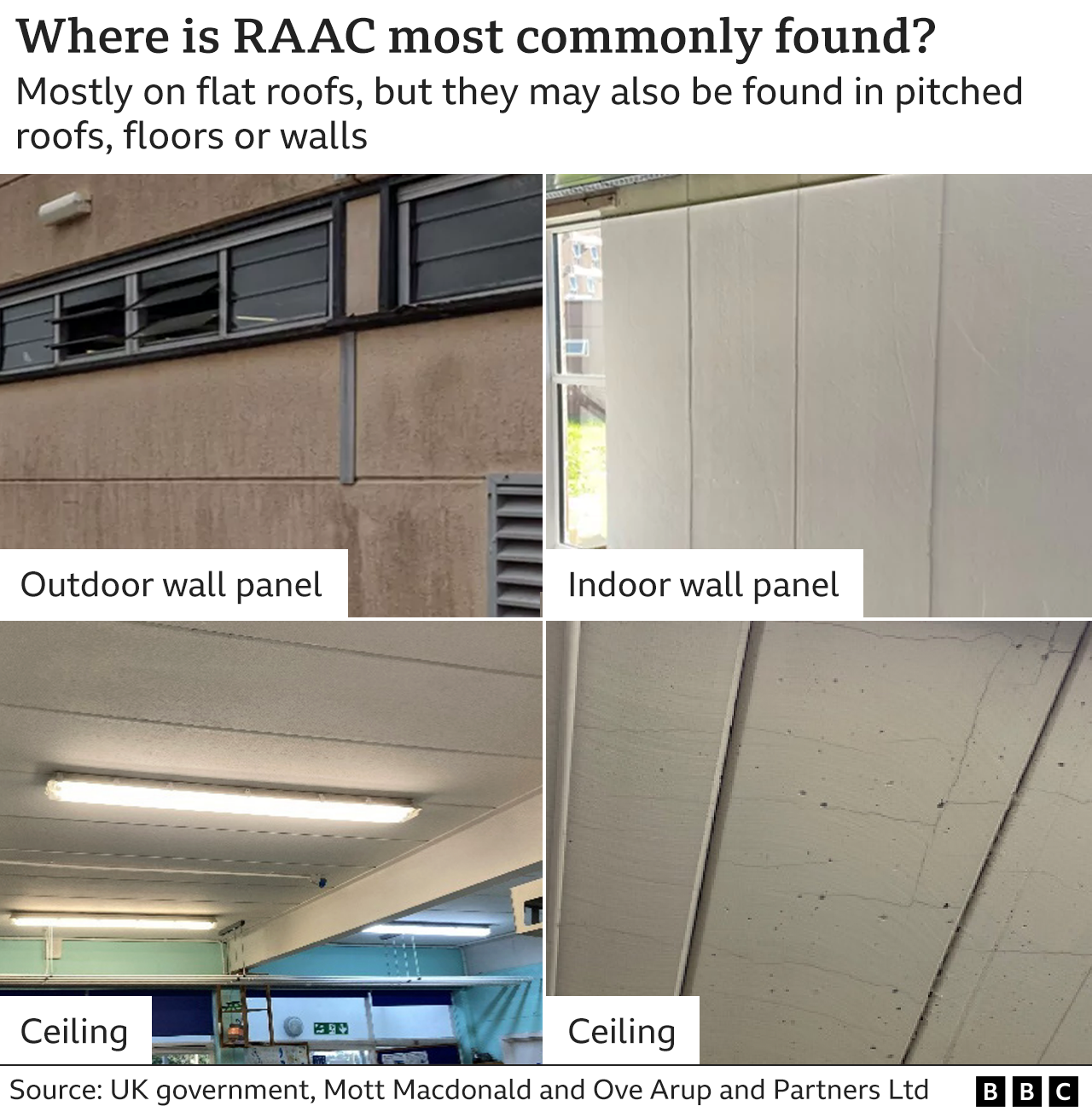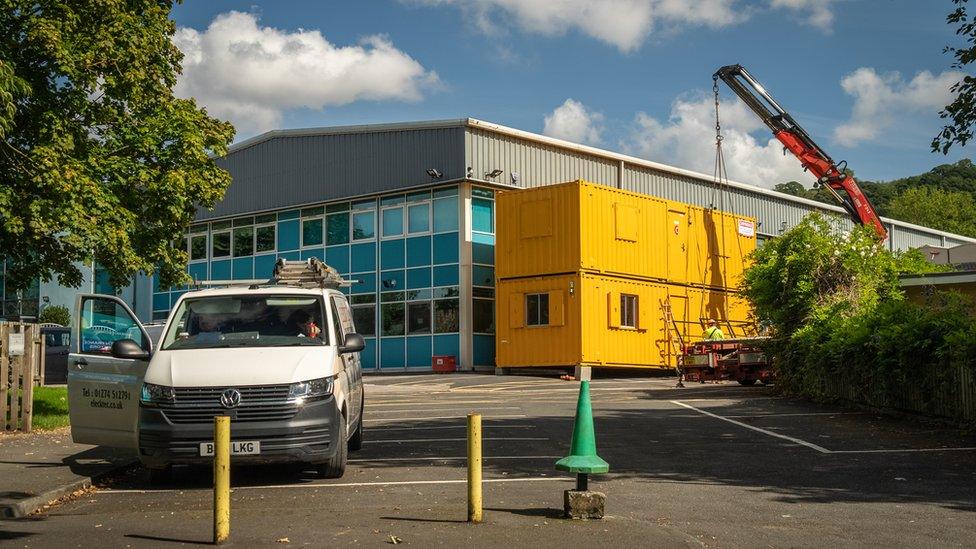School with faulty concrete to remain open

The council said a number of safety measures had already been installed at Outwoods Primary School in Atherstone
At a glance
All schools in Warwickshire are expected to open as planned next week, despite nationwide concerns about a type of concrete prone to collapse
More than 100 schools in England have been told they may need to shut some buildings
Outwoods Primary School in Atherstone is the only school in Warwickshire thought to be affected
However precautionary measures have already been introduced at Outwoods
- Published
A school in Warwickshire has said it will open as planned next week, despite one of its buildings including a type of concrete at the centre of safety concerns.
The government has ordered more than 100 schools, nurseries and colleges in England with reinforced autoclaved aerated concrete (RAAC) to shut affected buildings immediately until safety measures are introduced.
Outwoods Primary School in Atherstone is the only school in Warwickshire affected, the county council said.
However, unlike many other schools across the UK, the local authority said mitigating measures had already been introduced at Outwoods.

It said the situation there had been monitored closely for several years.
During this time, the council said extra weight-bearing supports had been installed.
"The school does not need to close thanks to early interventions and engagement, and we continue to work closely with both the school staff and the Department for Education on a programme of works that began this year, which has removed the greatest risk areas completely en route to permanently resolving all of the issues," a council spokesperson said.
Conservative MP for North Warwickshire Craig Tracey said he had been made aware of the issue earlier this year.
Work had been carried out to address problems during the six-week holiday, he said.
"This has been a positive outcome thanks to the work undertaken by the local authority, the DfE and the school staff to rectify the situation in a constructive matter."
Less durable
Education Secretary Gillian Keegan said the government's guidance, days before the new term, was issued following "new evidence" about the material, and added the government was taking a "cautious approach".
RAAC is a lightweight concrete that was used in roofs, floors and walls between the 1950s and 1990s.
It is a cheaper alternative to standard concrete and because it is aerated, or "bubbly", it is less durable, with a limited lifespan of about 30 years. The structural behaviour also differs significantly from traditional reinforced concrete.
Unions and opposition parties are saying the government should have acted sooner.
Follow BBC West Midlands on Facebook, external, Twitter, external and Instagram, external. Send your story ideas to: newsonline.westmidlands@bbc.co.uk, external
Related topics
Related Internet Links
- Published19 September 2023

- Published31 August 2023

- Published1 September 2023
